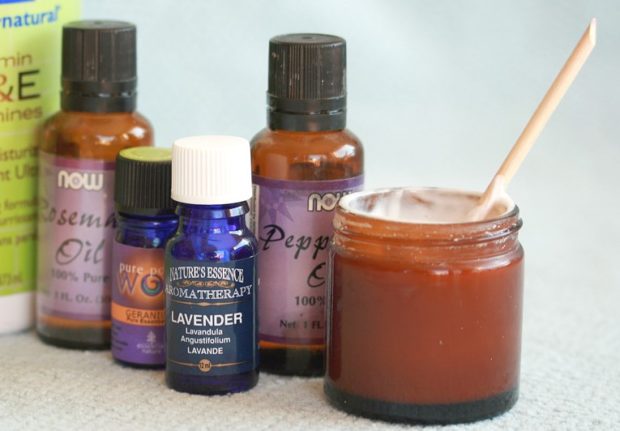A Career Girl’s Guide to Aromatherapy

The term aromatherapy might be less than a hundred years old, but the therapeutic use of aromatic plants appears to go back to the beginnings of human civilization. A book listing medicinal uses of over 700 plants and substances was published in India around 2000 BC, and another book listing medicinal uses for plants was published in China circa 2500 BC. The ancient Egyptians, however, are the culture regarded as pioneering the use of aromatic plants. Essential oils were used for religious, cosmetic, and medicinal purposes in Egypt, in addition to helping with their famous embalming process. And the Romans, Greeks, and Hebrews seemed to know their way around plant-related aromatics, too.
What does all of this have to do with you, the modern career girl? If people have been using aromatherapy for thousands of years, there’s a decent chance it’s more than hocus pocus.
What You Need to Get Started
If you’re interested in giving this aromatherapy thing a whirl, here’s how to get started.
First, you’ll need some essential oils. You can purchase an aromatherapy starter kit or select individual oils based on what you’re trying to accomplish (e.g., relaxation, stress-relief, sleep aid, allergy relief, menstrual cramp relief, or headache relief).
Second, you’ll need diffusers. Most starter kits come with these; otherwise, you’ll need to find one that meets your budget, room size, and aesthetic sensibilities. Room diffusers aren’t the only essential oil diffusers on the market; personal diffusers, which can be found as nasal inhalers, necklaces, bracelets, tassels, pens, fidget spinners, and car adaptors, keep the essential oils close to your body.
From there, you can accessorize as much or as little as you want. Some aromatherapy experts recommend buying a storage box with compartments that hold your essential oil bottles. Because the bottles are so small, they can easily get knocked over if you keep them out on a dresser or shelf. Other popular accessories include travel cases and books on aromatherapy.
If you want to use essential oils on your skin, you’ll want to buy a carrier oil. Applying essential oils directly onto your skin can cause skin irritation.
Essential Oils for Job-Related Ailments
Most jobs–even dream jobs, even jobs you love so much they don’t really feel like a job–are stressful. Workplace stressors can include the continual pressure to perform at high levels, unwanted overtime, lack of job satisfaction, lack of control over how you do your job, and fear of being laid off. These stresses can manifest themselves as fatigue, trouble concentrating, problems sleeping, loss of sex drive, digestive problems, turning to alcohol, and feeling anxious, depressed, or irritable.
Aromatherapy can become a welcome part of your wellness routine for coping with stress. For a calming experience, you’ll want to look for lavender, rose, ylang ylang, bergamot, chamomile, jasmine, or clary sage essential oils.
What about those nasty headaches you get after a long, intense day of staring at your computer screen? Try peppermint, rosemary, lavender, eucalyptus, or chamomile essential oils.
What about bringing aromatherapy into the office? If you’re wearing a personal diffuser as jewelry, or if you keep a small diffuser on your desk, try rosemary, bergamot, geranium, or lemongrass. Rosemary essential oil is thought to help promote concentration and productivity. Bergamot provides an uplifting scent, believed to improve moods. Geranium essential oil will provide a light floral aroma that can be uplifting during gloomier times of the year. And lemongrass may help you feel awake and aware while doing double duty to help repel fruit flies or gnats.
During the fall or winter holidays, a clove essential oil will add a festive air to the office.
A Bonus Benefit of Aromatherapy
While this isn’t strictly work-related, aromatherapy is often praised for helping manage PMS symptoms. A few brands that sell essential oils produce specialized, pre-mixed blends. And a PMS-relief blend might include lavender, clary sage, ylang ylang, cedarwood, fennel, bergamot, ginger, and other oils.

